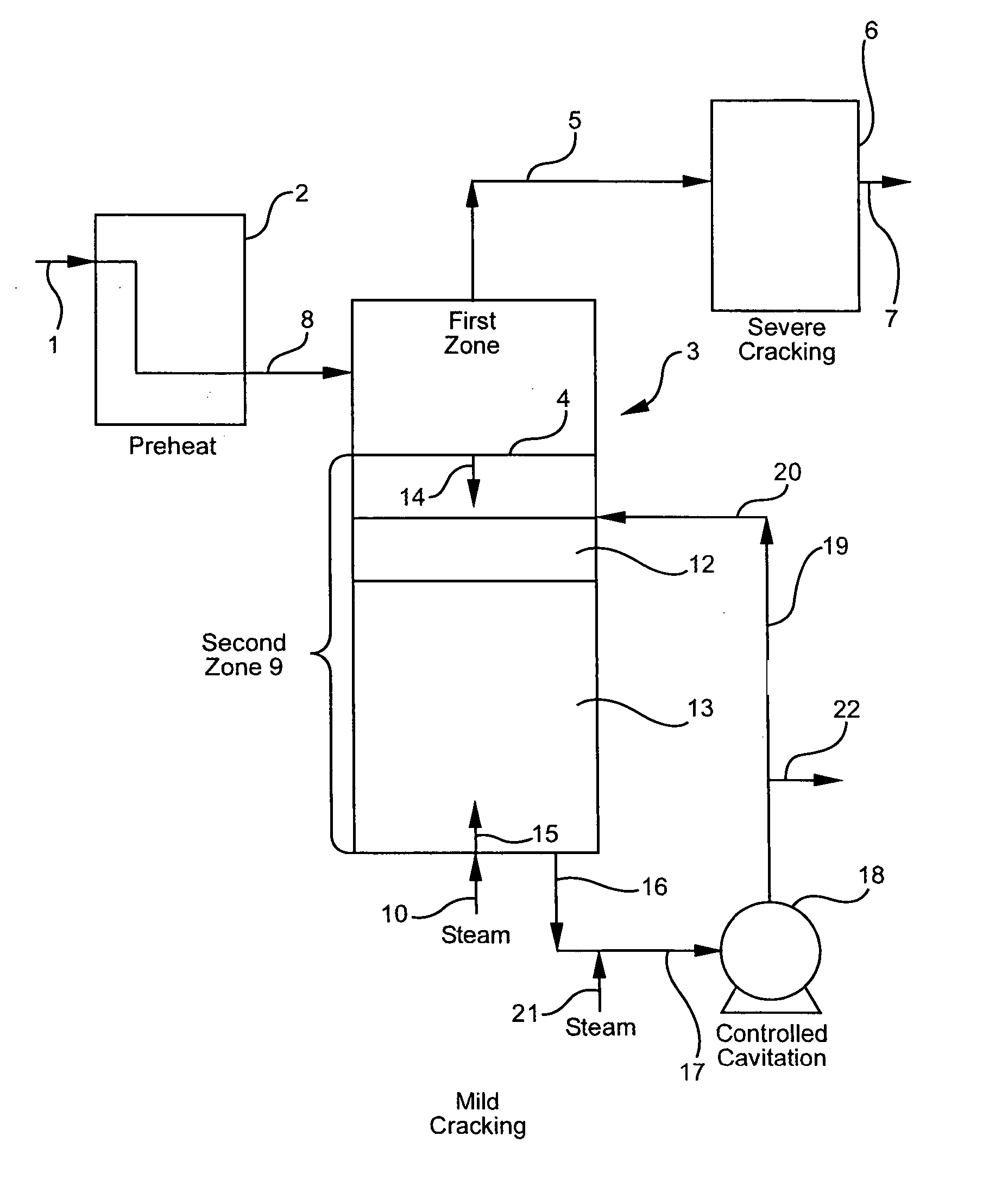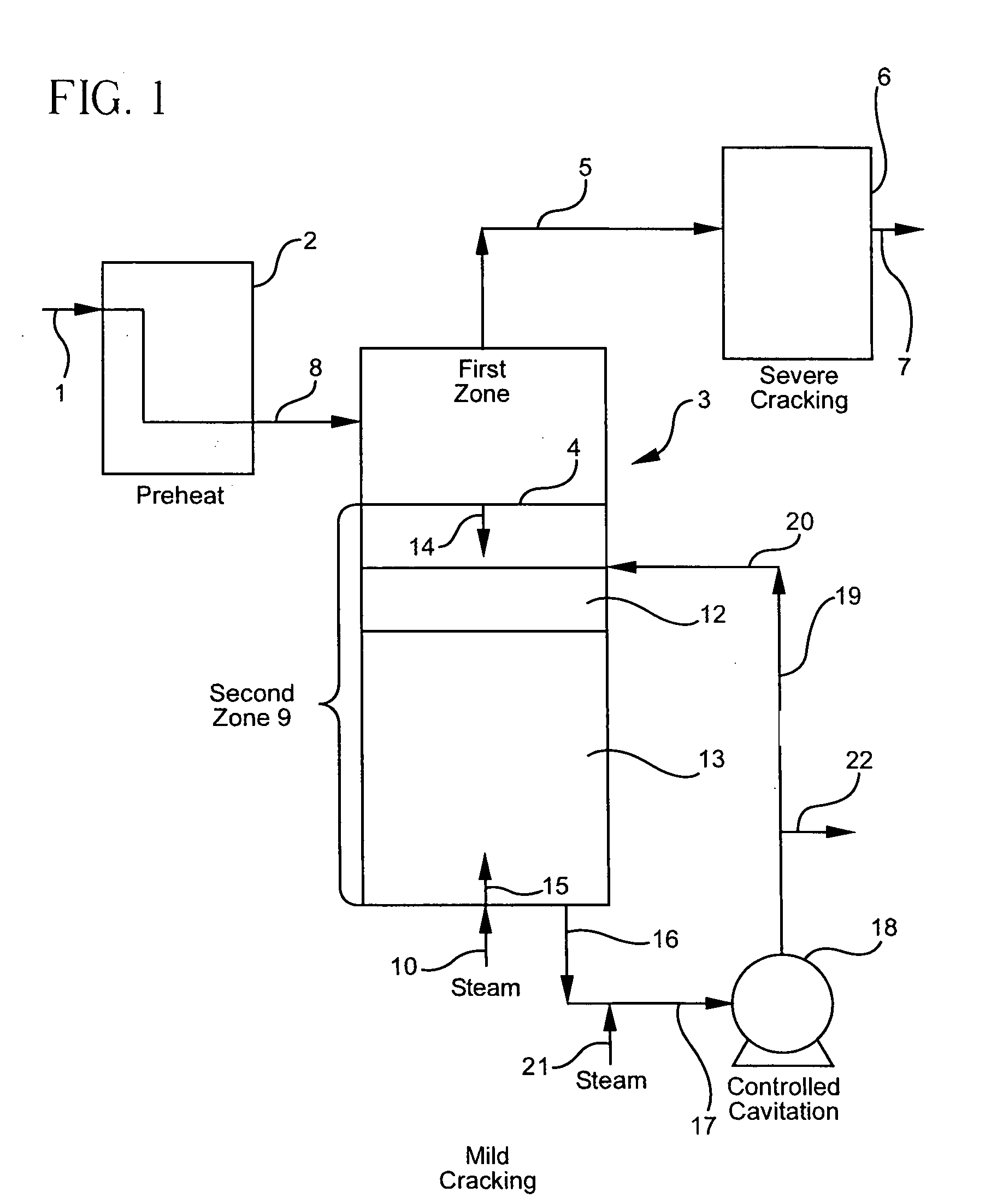Olefin production utilizing whole crude oil and mild controlled cavitation assisted cracking
- Summary
- Abstract
- Description
- Claims
- Application Information
AI Technical Summary
Benefits of technology
Problems solved by technology
Method used
Image
Examples
example
[0070] A whole, straight run crude oil stream from a refinery storage tank characterized as Saharan Blend is fed directly into a convection section of a pyrolysis furnace at ambient conditions of temperature and pressure. In this convection section this whole crude oil primary feed is preheated to about 650° F. and then passed into a separate combination mild thermal cracking / controlled cavitation operation wherein gases are separated from liquids, and the gases removed from the mild cracking zone to the radiant section of the same furnace for severe cracking in a temperature range of 1,450° F. to 1,500° F.
[0071] The liquid, after separation from accompanying gases, is retained in the mild thermal cracking section 3 and allowed to fall downwardly in that section toward the bottom thereof. Steam at 1,300° F. is introduced into the bottom of zone 9 of section 3 to give a steam to hydrocarbon ratio in zone 9 of 1.2 / 1. With respect to the liquid falling downwardly in zone 9, the steam ...
PUM
| Property | Measurement | Unit |
|---|---|---|
| Temperature | aaaaa | aaaaa |
| Temperature | aaaaa | aaaaa |
| Temperature | aaaaa | aaaaa |
Abstract
Description
Claims
Application Information
 Login to View More
Login to View More - R&D
- Intellectual Property
- Life Sciences
- Materials
- Tech Scout
- Unparalleled Data Quality
- Higher Quality Content
- 60% Fewer Hallucinations
Browse by: Latest US Patents, China's latest patents, Technical Efficacy Thesaurus, Application Domain, Technology Topic, Popular Technical Reports.
© 2025 PatSnap. All rights reserved.Legal|Privacy policy|Modern Slavery Act Transparency Statement|Sitemap|About US| Contact US: help@patsnap.com


